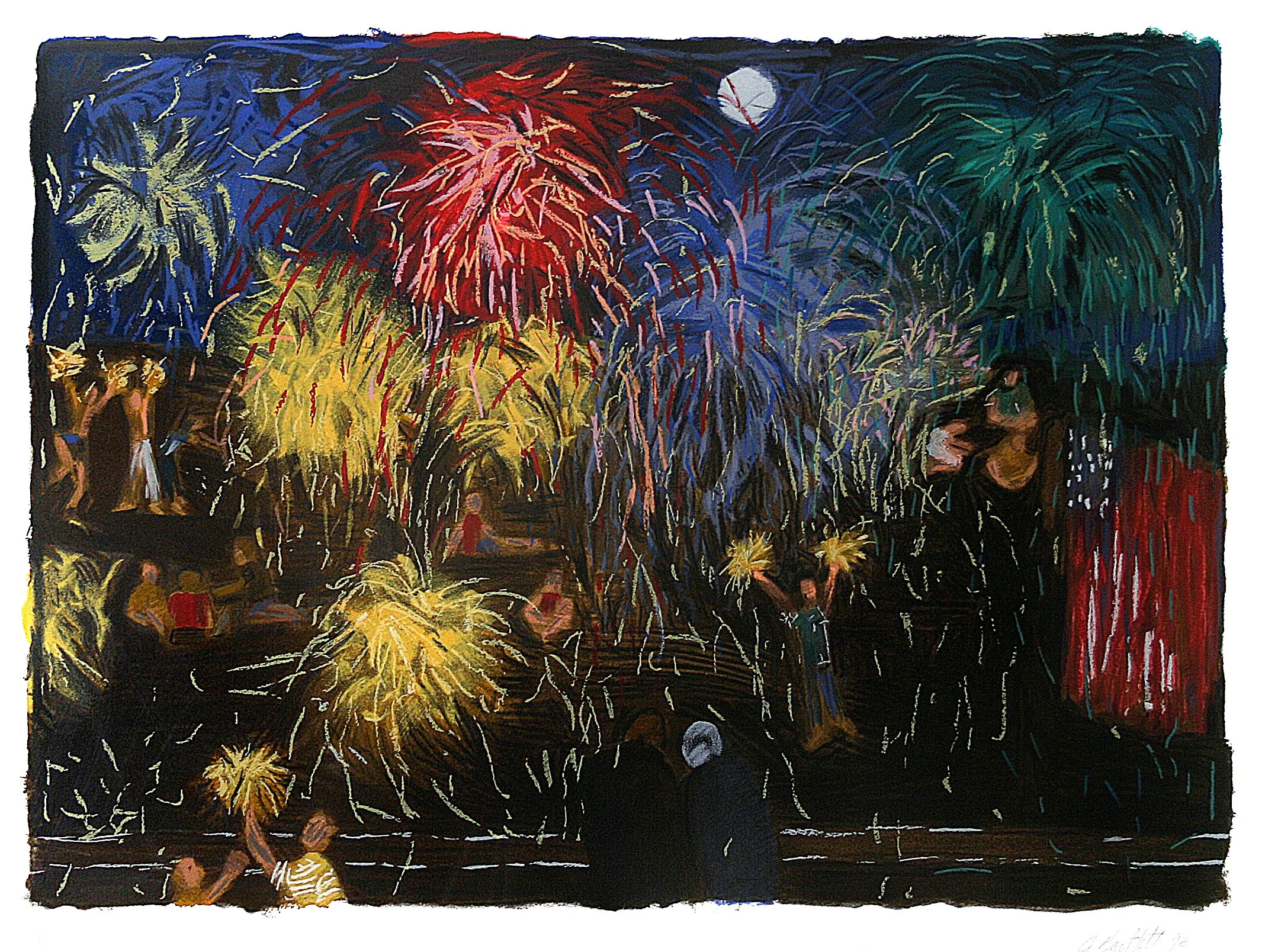Jennifer Bartlett
American, 1941–2022
Jennifer Bartlett was known for her room-sized installations ranging in medium, that explored her immediate environments including houses, mountains, trees, gardens, and the ocean. Inspired by Minimalism, she started working on square steel enameled plates in 1968 on which she went on to create her most notable works. Rhapsody (1975–1976), a polyptych first installed at Paula Cooper Gallery filling the entirety of the gallery, included hundreds of these painted steel plates. That work is now part of the permanent collection of the Museum of Modern Art, New York. Her work moved from Abstract Expressionism to Minimalism to Conceptualism with some works touching on all at once. Working in two dimensions and occasionally moving to three, her works often started in a controlled, mathematical abstraction and moved to more painterly realism.
Bartlett’s first survey exhibition was held in 1985 and traveled to the Walker Art Center, the Brooklyn Museum, and the Museum of Art, Carnegie Institute. In 2006, her early enameled steel plate paintings were surveyed at the Addison Gallery of American Art. Klaus Ottman curated her second traveling survey exhibition in 2013–14, Jennifer Bartlett: History of the Universe—Works 1970–2011, which traveled to the Pennsylvania Academy of the Fine Arts and the Parrish Art Museum. In 2014, the Cleveland Museum of Art exhibited all three of her monumental plate pieces, Rhapsody, Song, and Recitative in the exhibition Epic Systems. Bartlett’s works are in the collections of the Dallas Museum of Fine Arts, the Los Angeles County Museum of Art, the Metropolitan Museum of Art, the Museum of Fine Arts, Houston, the Museum of Modern Art, the Philadelphia Museum of Art, the San Francisco Museum of Modern Art, the Tate Modern, and the Whitney Museum of American Art, among many others.
Courtesy Marianne Boesky Gallery




